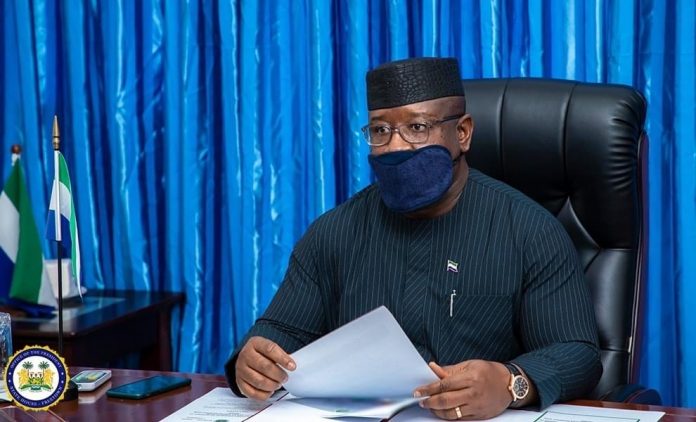By Amin Kef Sesay
Government provides the parameters for everyday behavior for citizens, protects them from outside interference, and goes further to provide for their well-being and happiness.
Thus, the basic functions of the Government are listed in the Constitution based on the fundamental human principles of unity, freedom and justice for one and all; as well as promoting the general welfare.
The Government is duty-bound to protect our rights from other people. For example, it must protect our right to life and to property. It does this by making and enforcing laws. The Government creates laws, for example, that make it illegal to steal from us by force or bilk us out of our money by fraud.
It requires elaborate legislation, effective control over State institutions such as the law enforcement agencies and continuous efforts on the part of numerous other State organs.
Obligations of the Government to its people in terms of ensuring peace and unity include:
- Free elections held at reasonable intervals by secret ballot or by equivalent free voting procedure, under conditions which ensure in practice the free expression of the opinion of the electors in the choice of their representatives;
- Government that is representative in character, in which the executive is accountable to the elected legislature or the electorate;
- Duty of the Government and public authorities to comply with the constitution and to act in a manner consistent with law;
- Clear separation between the State and political parties; in particular, political parties will not be merged with the state;
- Activity of the Government and the administration as well as that of the Judiciary exercised in accordance with the system established by law; respect for that system must be ensured;
- Military forces and the Police under the control of, and accountable to, the civil authorities;
- Human rights and fundamental freedoms guaranteed by law and in accordance with their obligations under international law;
- All persons equal before the law and entitled without any discrimination to the equal protection of the law; the law must prohibit any discrimination and guarantee to all persons equal and effective protection against discrimination on any ground;
- Everyone must have access to an effective means of redress against administrative decisions, so as to guarantee respect for fundamental rights and ensure legal integrity;
- Administrative decisions against a person must be fully justifiable and must as a rule indicate the usual remedies available; and
- The independence of judges and the impartial operation of the public judicial service must be ensured. Principles of fair trial guaranteed and access to justice, to effective remedies, secured.
Furthermore, to comply with human rights obligations, the State must establish foundations for the rule of law in which the following institutions must be guaranteed:
- A legislative institution, which represents the will of the people, and is chosen by free elections held at reasonable intervals under conditions which ensure in practice the free expression of the opinion of the electors in the choice of their representatives. The legislative body should legislate in compliance with international human rights commitments.
- Importantly, there must be a judiciary that protects the human rights of individuals and groups against arbitrary legislative power and guarantees effective remedies and fair trial and,
- An executive branch that does not abuse discretionary power and seeks to promote the enjoyment of human rights by all under its jurisdiction.




